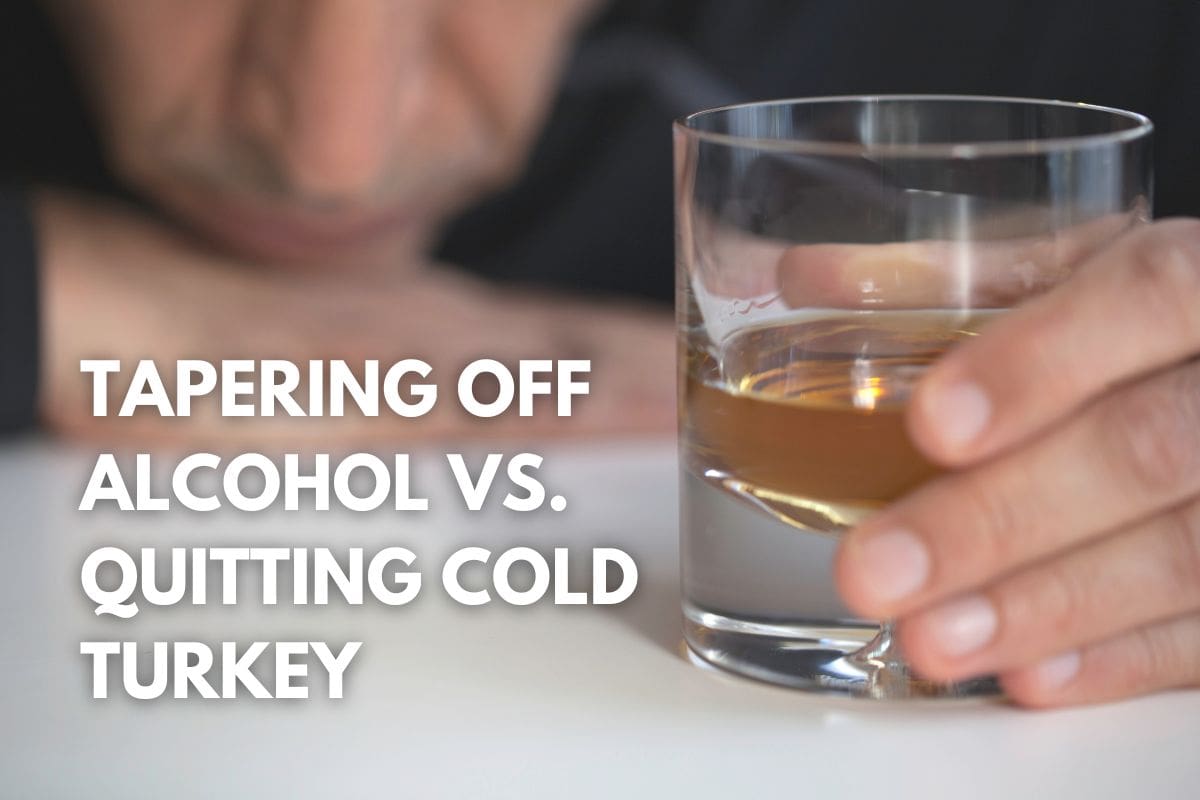If you’re struggling with alcoholism or just want to cut back on alcohol consumption, there are two main options: quitting alcohol cold turkey or tapering off alcohol. Both involve quitting drinking, but tapering off involves slowly reducing the alcohol consumed over time until you’re no longer drinking. Some people find it easier to taper than go cold turkey; others prefer quitting outright.
In this article, we’ll explore the pros and cons of each approach and how to taper off alcohol so that you can decide which one is right for your situation.
What is Tapering Off Alcohol?
For most people, the safest way to quit is to taper off alcohol gradually. Tapering off alcohol gives your body time to adjust to living without the effects of alcohol by slowly reducing your intake over days or weeks. It can also help reduce withdrawal symptoms, which can be severe.
Tapering off alcohol is relatively common among people with physical alcohol dependence. In this case, the body slowly adjusts to life without the substance. Tapering off alcohol helps reduce uncomfortable withdrawal symptoms and prevent life-threatening complications. Some people might need medications or tapering drugs to help ease any withdrawal symptoms that arise throughout the tapering-off process.
Pros of tapering off alcohol
- A safer method of detoxing from alcohol
- Experience less intense withdrawal symptoms
- Control cravings better
- Potentially smaller chance of relapse
Cons of alcohol tapering
- Difficult to do on your own
- Risk of relapse when done incorrectly
- A slower process of detoxing
- Not guaranteed to be safe without supervision
What is Quitting Alcohol Cold Turkey?
Quitting alcohol cold turkey is another option, but it isn’t always safe or practical for everyone – cold turkey is not recommended for people with alcohol dependence or who have a history of alcohol withdrawal.
Quitting cold turkey means you stop using alcohol all at once without any period of adjustment or replacement therapy. For starters, withdrawal symptoms can be highly uncomfortable. Symptoms of alcohol withdrawal include nausea, vomiting, shaking, headaches, and insomnia.
These symptoms can last for several days or weeks depending on how much alcohol you drink regularly and the length of time you have been drinking excessively. While these symptoms are not life-threatening per se, they can be pretty uncomfortable.
When you quit cold turkey without supervision, you’re more likely to relapse and binge drink, which increases the likelihood of overdose.
If you only drink two to three drinks per week, you can easily quit cold turkey without experiencing major withdrawal symptoms. However, tapering off may be the way to go if you drink heavily or have more than six drinks per week.
Which Method Is Better?
The best way to safely quit drinking is by following the advice of a doctor or treatment center. A doctor or treatment center can help you find the best way to quit drinking and provide information on the withdrawal symptoms and psychological dependence on alcohol that you may experience during a detox period.
Alcohol withdrawal can be uncomfortable. Due to the risk of withdrawal symptoms like seizures, many people benefit from a stable environment provided by medical detox centers. In these settings, they use a taper-off method that sometimes includes medications to help mitigate the effects of alcohol withdrawal symptoms.
Studies suggest that a tapering regimen that gradually decreases doses at fixed intervals can be beneficial.
During medical detox, medical professionals obverse the side effects of withdrawal and can help provide the support and guidance you need to continue your recovery process. They can also ensure you receive fluids to manage dehydration and provide balanced meals to minimize withdrawal effects.
Nonetheless, quitting cold turkey might be the only way for people who don’t have an alcohol use disorder (AUD). In this case, having a strong support system, attending AA meetings, and talking with an addiction counselor are key to a successful detox process.
Choose the quit method that works best for you and seek help if you need it.
Finding Help for Alcohol Addiction
If you’re having trouble quitting alcohol, many resources are available to help. You can talk to your doctor about medications that may help ease the process. If you’re worried about your drinking habits, and they might be affecting your health or destroying relationships with loved ones, consider seeking an alcohol treatment program.
Each method has pros and cons, but regardless of which one you choose, you must have the knowledge and resources to make a quit attempt successful. If you’re quitting drinking cold turkey and need help, please find professional help from an addiction rehab center. Even if you think either option sounds like something that could work for your situation, we still recommend talking to a doctor before proceeding.

































